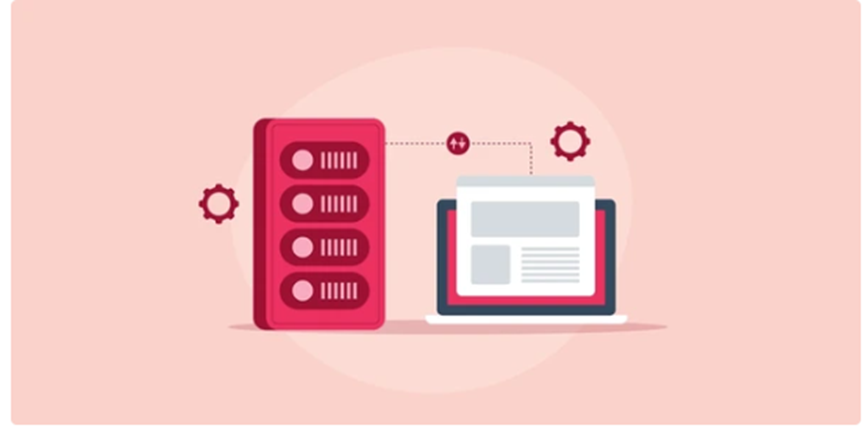What separates dedicated servers from non-dedicated servers?

Strong 8k brings an ultra-HD IPTV experience to your living room and your pocket.
Businesses need to have a digital presence in order to survive in the modern economy. Additionally, businesses require a trustworthy online presence. Most business owners focus too much on their logo and webpage design, but they often overlook an even more crucial component of their online presence: deciding whether to host their website on a dedicated or non-dedicated server.
To support your website, there are numerous infrastructure alternatives available. Selecting the right backend framework for your website can make or break the success of your business; it may not be as exciting as deciding between a dedicated server and a non-dedicated server. Setting you and your company up for success is the aim of this comprehensive comparative guide.
Compare the key elements of both dedicated and non-dedicated servers side by side to learn more about each. You'll be able to choose the server or hosting that works best for your business after reading this, as all the research has been done for you.
A dedicated server: what is it?
A physical machine that is only used by one person or organization is called a dedicated server. It offers complete control over the CPU, RAM, and storage, among other hardware resources. Because they have full administrative access, users can customize servers, security settings, and applications. Dedicated servers are ideal for enterprises with unique compliance requirements, sophisticated applications, and websites with significant traffic volumes because they provide exceptional performance, dependability, and security.
Why do you require a dedicated server?
With their improved security features and good impact on loading speeds for your web pages, dedicated servers are perfect for coping with an increase in traffic or growth of your website. This is because dedicated servers are ideal for handling growth. You might require a dedicated server for the following reasons:
1. Website Growth
If your site has grown significantly, you'll need a server to handle the load. When traffic surges, a shared server will slow loading times and increase bounce rates. To attract more people during promotions and special events, your site should be able to handle traffic surges of up to 30 times daily traffic. An unreliable server might cause site latency and crashes.
2. Page Load Durations
The loading times of your website can significantly affect all facets of your organization. Slower page loading times result in increased bounce rates and diminished engagement metrics. A dedicated server allows for efficient optimization of bandwidth and website loading times, as well as proper allocation of server resources.
3. Security Issues
If your website handles credit card numbers or client emails and phone numbers, security is crucial. Protecting this data and your website against hackers, malware, and other threats is crucial. A dedicated server gives you full control over your website's security and allows you to organize stored data as you see fit.
4. Direct Server Control
A dedicated server lets you fully control your hardware, another benefit. Dedicated hosting lets you customize data storage and modifications. Choose your server software for resource control.
A non-dedicated server: what is it?
Several websites are hosted on a single physical machine via a non-dedicated or shared server. There may be variations in performance as a result of users sharing resources like CPU, RAM, and storage. Shared or non-dedicated servers are more cost-effective, but they provide less customization and control.
They work well for modestly trafficked tiny websites. Nonetheless, resource rivalry may affect the dependability and speed of a website. Shared environments can also give rise to security issues; thus, they are not the best choice for sensitive data or busy locations.
Why do you need a non-dedicated server?
It is not going to be possible for your website to have exclusive access to the server resources because it will be sharing a server with other websites. The fact that shared servers are still secure and a more cost-effective alternative should not, however, be too much of a problem in the grand scheme of things.
If you are looking into non-dedicated servers, there are a few things you should bear in mind. There is a possibility that you could use a shared hosting system if they are relevant to you and your website.
1. Savings on Expenses
As a result of the fact that a non-dedicated server is utilized by multiple customers, shared hosting systems are unquestionably a more cost-effective alternative. In contrast to dedicated servers, you will not be required to pay any premium fees, which will result in cost savings for you.
2. There is no problem with security
Using a non-dedicated server is something you can absolutely rely on if your company does not primarily deal with personal information, billing information, or credit card numbers. In spite of the fact that you will not have a unique Internet Protocol address and will share an IP address with other websites, it is recommended that you continue to use a non-dedicated server configuration.
3. Small Enterprise
One does not need to be as concerned about user surges when it comes to a website for a small business because there is less traffic flowing to your site. A non-dedicated server will be sufficient for the task at hand if this is the case with your website.
What Sets Dedicated Servers Apart from Non-Dedicated Servers?
Let's take a closer look at the main distinctions between dedicated and non-dedicated servers now.
1. The expenses
Expense is a key consideration when deciding between a dedicated and non-dedicated hosting solution. In general, dedicated servers are more costly; the monthly cost of a basic setup starts at can go much higher. The utilization of resources exclusively and improved performance are reflected in this greater cost.
Due to their shared nature and lower cost, non-dedicated servers are ideal for multiple users. For small enterprises or newly launched websites, non-dedicated servers are an appealing alternative because their prices are usually low.
2. Allocation of Resources
The distribution of resources is the primary distinction between a dedicated and non-dedicated server. You have total control over the server's resources if you have a dedicated server. Because of your complete control over the CPU, RAM, and storage, you can maintain peak performance even during periods of high traffic.
Conversely, a non-dedicated server distributes its resources across several websites. Sudden increases in traffic to one website on the server could have an impact on other websites as well.
3. Scalability
Your hosting requirements could alter as your website expands. Excellent scaling options are provided by dedicated servers. If traffic volume increases, you may quickly update hardware parts or move to a more powerful server.
Scalability is another feature of non-dedicated servers, albeit it's frequently more constrained. There may come a time when you require more power than a non-dedicated server can offer, even though you can usually switch to a higher-tier shared hosting plan.
4. Both Efficiency and Velocity
Dedicated servers clearly have an edge in terms of performance. Because dedicated servers only utilize resources for one website, they are better equipped to withstand heavy traffic volumes. Users get a better experience and websites load more quickly as a result.
Non-dedicated servers can withstand moderate traffic but may run more slowly during peak hours because of resource pooling. The distinction between dedicated and non-dedicated servers becomes increasingly noticeable as your website expands and gains more users.
5. Protective measures
Security is necessary for any website, but it's especially important for those handling sensitive data or online sales. More security is provided by dedicated servers than by non-dedicated ones. Custom safety protocols and total control are possible with a dedicated server.
Though they are nonetheless safe, shared environments on non-dedicated servers could make them more susceptible to security lapses. It may have an impact on other websites that share the server if one of the websites is compromised.
6. Control and Personalization
The degree of personalization and control offered by dedicated versus non-dedicated servers is another important distinction. Complete control over your server is given to you with dedicated servers. The server can be tailored to your requirements by installing unique apps and choosing your preferred operating system.
The customization possibilities available on non-dedicated servers are restricted. The software and configurations that the hosting firm provides are usually the only options available to you, and they might not always meet your unique requirements.
The Choice Between Dedicated and Non-Dedicated Servers-
The comparison of dedicated servers and non-dedicated servers might be difficult to make when it comes to selecting the sort of server that is most suitable for your requirements. Servers that are dedicated to your business provide you with increased protection and control over the information you save and how it is stored.
Non-dedicated servers, on the other hand, provide a more affordable price point and are also trustworthy, which is especially beneficial for a smaller corporation or company that is just starting out. A dedicated server, on the other hand, is the perfect choice for you to make if you predict that your website and business will experience growth and that you will see increased rates of traffic and interaction throughout the years.
The dedicated server is an extremely dependable piece of hardware for your requirements because it allows you to have direct control over the server's resources, is more secure, and allows your website to load more quickly, among other benefits.
Conclusion-
To choose the best web hosting solution for your purposes, it's essential to comprehend the distinctions between dedicated and non-dedicated servers. Although dedicated servers have more customization choices, security, and performance, they are more expensive. Alternatively, smaller or newly established websites can benefit from a more cost-effective solution offered by non-dedicated servers.
With the best-dedicated server hosting provider, you receive unique access to top-notch hardware and resources for your website, giving you unrivaled power and control. Your company may grow online without compromising thanks to our fully managed dedicated servers, which provide blazing-fast speed, unwavering security, and round-the-clock professional support.
Note: IndiBlogHub features both user-submitted and editorial content. We do not verify third-party contributions. Read our Disclaimer and Privacy Policyfor details.







